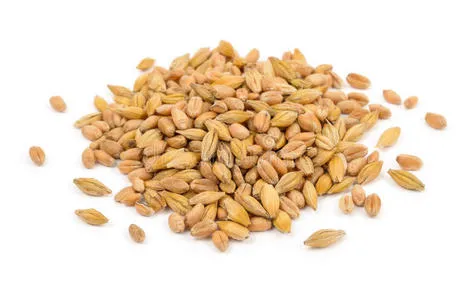
Oct . 18, 2024 07:23 Back to list
Exploring the Potent Effects of Mesotrione in Agricultural Applications and Environmental Impact
The Role of Mesotrione in Agriculture An Overview of Its Activity and Application
Mesotrione is a selective herbicide that has gained prominence in agricultural practices due to its effectiveness in enhancing crop yield while minimizing weed competition. As a member of the triketone family, mesotrione operates by inhibiting the enzyme 4-hydroxyphenylpyruvate dioxygenase (HPPD), which is vital for carotenoid biosynthesis in plants. This inhibition prevents the proper development of chlorophyll, resulting in the whitening or bleaching of susceptible weed species. With its unique mechanism of action, mesotrione helps maintain healthier crops, offering an innovative solution to perennial challenges faced by farmers.
Mechanism of Action
The action of mesotrione involves the disruption of carotenoid synthesis. Carotenoids are essential pigments that play a critical role in protecting plants against photo-oxidative damage. When mesotrione is absorbed by weeds, the blocked production of these pigments leads to a loss of color, ultimately resulting in the death of the target plants. This selectivity allows mesotrione to effectively control various broadleaf weeds and certain grasses without adversely affecting rotational crops, making it a versatile choice for integrated weed management strategies.
Application and Efficacy
Mesotrione is predominantly used in Corn (Zea mays) and other crops where its selective nature is beneficial. It can be applied pre-emergence or post-emergence, providing flexibility to farmers based on their operational needs. Research indicates that when used in conjunction with other herbicides, mesotrione can enhance efficacy and broaden the spectrum of weed control. This synergistic application not only improves weed management but also contributes to a decrease in the overall amount of herbicide used, aligning with sustainable agriculture practices.
Farmers have reported significant reductions in the populations of problematic weeds such as velvetleaf (Abutilon theophrasti), giant ragweed (Ambrosia trifida), and foxtail species (Setaria spp.) when using mesotrione. The herbicide is effective primarily during the early stages of weed growth, which is critical in preventing them from competing with crops for vital resources such as light, water, and nutrients.
mesotrione activity factory

Environmental Considerations
Like all agricultural inputs, the use of mesotrione is not without environmental considerations. While it has been demonstrated to have low toxicity to non-target species, including beneficial insects and pollinators, responsible application practices are necessary to mitigate any potential adverse effects on the ecosystem. Farmers are urged to adhere to recommended application rates and timing to minimize runoff and prevent contamination of water bodies. Additionally, the use of buffer zones and integrated pest management practices can further enhance the sustainability of mesotrione applications.
Regulatory and Market Aspects
In recent years, the regulatory landscape surrounding herbicide use has become increasingly stringent, focusing on the safety of agricultural chemicals. Mesotrione, having undergone extensive safety assessments, has been approved for use in various countries. Its availability has spurred significant interest among farmers looking to incorporate innovative weed management solutions into their practices.
Moreover, with the rising global demand for food production, the role of effective herbicides like mesotrione becomes even more critical. As agriculture continues to evolve, the adoption of herbicides that can deliver efficacy while aligning with sustainability goals positions mesotrione as a key player in modern farming.
Conclusion
In summary, mesotrione serves as a powerful ally in the quest for efficient and sustainable agriculture. Its selective action against a wide range of weeds, combined with minimal impact on crops and the environment, positions it as a valuable tool for farmers. The continuous advancement in understanding and implementing mesotrione not only contributes to enhanced crop yields but also supports the broader goal of sustainable food production. As the agricultural sector faces increasing pressure from weeds and environmental challenges, the utilization of effective herbicides like mesotrione will be pivotal in ensuring food security for a growing global population.
-
Azoxystrobin: Broad-Spectrum Fungicide Solutions
NewsAug.11,2025
-
Best EPA Boscalid: Superior Crop Fungicide for Max Yields
NewsAug.11,2025
-
Best Willowood Imidacloprid: Superior Pest Control Solutions
NewsAug.10,2025
-
Best EPA Boscalid Fungicide: Ultimate Crop Protection
NewsAug.09,2025
-
Cyprodinil Fungicide: Broad-Spectrum Crop Protection
NewsAug.08,2025
-
Tembotrione Herbicide: Advanced 8% OD for Broad Spectrum
NewsAug.07,2025
